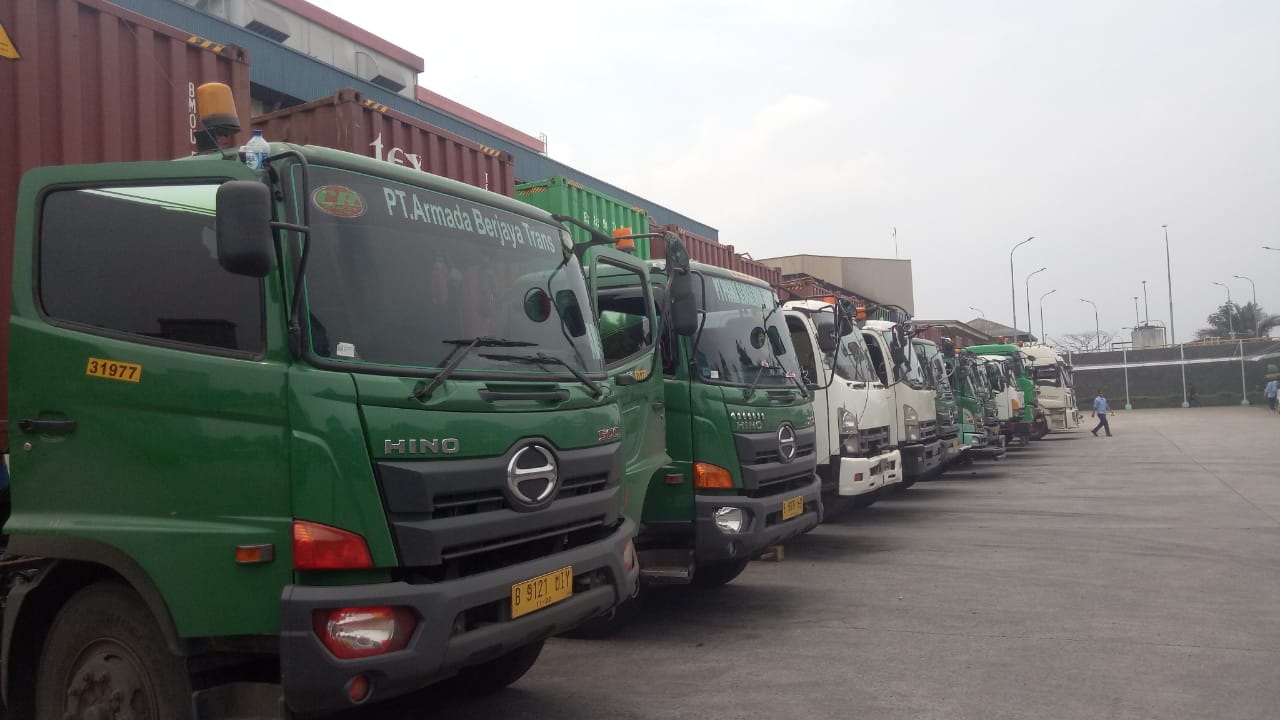To support the economic
growth in Indonesia, Government Regulation number 4 year 1978,
regarding the establishment of PT Jasa Marga (persero) Tbk. Indonesia,
was established on March 1, 1978 to provide a reliable road network in the country.
Jasa Marga's Jakarta-Bogor-Ciawi Toll Road, which was constructed in 1978, was a milestone in the history of the toll road industry in Indonesia. Not
only did it primarily function as an operator, but it also
had national toll roads authority. Until 1987, Jasa Marga had been the
only toll road operator in the country which was funded by the
Government through foreign loans and bond issuance.
Since late 80s, the Indonesian Government had begun to include private sectors in the toll road development through the Build, Operate and Transfer (BOT) mechanism. During the 90s, however, PT Jasa Marga (persero) Tbk. began
to facilitate private investors which mostly failed to realize their
project. JORR and Cipularang were some of the toll roads taken over.
The Government
then established Law number 38 year 2004 on Road which replaced Law
number 13 year 1980, along with Government Regulation number 15, which
further specified regulations regarding toll roads. This have altered the mechanism of the toll road business. The Toll Road Regulatory Agency establishment and
biannual toll tarif rate adjustments by the Minister of Public
Works are some of the implications. Therefore, the whole authorization
has been handed back to the Government. From that moment on, Jasa
Marga, as a toll road operator and developer, requires a concession
license from the Government.
Period I
1978 – 1987Single Operator for Toll Road
1978 – Jasa Marga was founded as a toll road single-operator in terms of management, maintenance, and network procurement
1978 – Jagorawi (Jakarta-Bogor-Ciawi) commenced operation
1979 – Rajamandala Toll Bridge commenced operation and was returned to the government in 2003
1981
– Tallo Lama Toll Road (Ujung Pandang) commenced operation and was
handed over to PT Bosowa Marga Nusantara for management in 1995
1981 – Wonokromo Toll Bridge (Surabaya) commenced operation and was returned to the government in 1986
1982 – Kapuas Toll Brigde commenced operation and was returned to the government in 1991
1982 – Mojokerto Toll Brigde commenced operation, but was returned to the government in 2003
1984 – Jakarta-Tangerang Toll Road commenced operation
1983 – Semarang Section A Toll Road (Srondol - Jatingaleh) commenced operation
1985 – Ir. Sedyatmo (Airport) Toll Road commenced operation
1986 – Belawan Medan Tanjung Morawa Toll Road commenced operation
1986 – Surabaya-Gempol-Mojokerto Toll Road commenced operation
Period II
1987 – 2004Toll Road Operator and Authority
The government provided all private parties the opportunity to participate in toll road management through the build, operate, and transfer (BOT) system
1987 – Cawang-Semanggi Inner City Toll Road commenced operation
1987 – Semarang Section B Toll Road (Jatingaleh-krapyak) commenced operation
1988 – Jakarta-Cikampek Toll Road commenced operation
1989 – Semanggi-Grogol Inner City Toll Road commenced operation
1991 – Padalarang-Cileunyi Toll Road commenced operation
1995 – Jakarta Outer Ring Road of Pondok Pinang-Lenteng Agung commenced operation (by PT Marga Nurindo Bhakti)
1996 – Jakarta Outer Ring Road of Pondok Pinang-Lenteng Agung commenced operation (by PT Marga Nurindo Bhakti)
1998 – Palimanan Kanci Toll Road commenced operation
1998 – Semarang Section C Toll Road (Jangli-Kaligawe) commenced operation
1999 – Serpong-Ulujami Toll Road (Serpong-Bintaro Viaduct) commenced operation
2003 – Jakarta Outer Ring Road was operated by PT Jalan tol Lingkar luar Jakarta (subsidiary of Jasa Marga)
2003 – Cipularang Phase I Toll Road (Padalarang bypass and Dawuan-Sadang) commenced operation
Period III
2004 – presentToll Road Operator and Developer
The Authority function is returned to the Government (Department of Public Works), Jasa Marga became a pure operator
2005 – Cipularang Phase II Toll Road (Sadang-Padalarang Utara) commenced operation, Jakarta-Bandung is connected by a toll road
2006 – Jakarta Outer Ring Road (Taman Mini-Jati Asih section) commenced operation
2006 – Surabaya-Gempol Toll Road, Porong-Gempol Lane is closed due to mud incident
2007 – Jakarta Outer Ring Road of Rorotan-Ulujami (4,5km) commenced operation
2007
– PT Jasa Marga (Persero) Tbk became public company through IPO
(initial Public Offering) and registered its shares in Indonesia Stock
Exchange
2008 – Bogor Ring Road Toll Road was operated by PT Marga Sarana West Java, a subsidiary of Jasa Marga
2009 – Suramadu Toll Bridge was operated by Jasa Marga, Surabaya-Gempol branch
2011 – Surabaya-Mojokerto Section IA Road Toll Road was operated by PT Marga Nujyasumo Agung, a subsidiary of Jasa Marga
2011 – Semarang-Solo Phase I, Semarang-Ungaran Lane Toll Road was operated by PT Trans Marga Jateng, a subsidiary of Jasa Marga
2012 – Implementation of e-Toll Pass
2013
– The initiation of Nusa Dua-Ngurah Rai-Benoa Toll Road (Bali Mandara
Toll Road) and W2 North JORR (Kebon Jeruk Toll-Ciledug.
2013 – Forming of PT Jasamarga Property
2014
– The initiation of Semarang-Solo toll road (section 2 Ungaran-Bawen
segment), ogor Outer Ring Road (section 2A Kedung Halang-Kedung Rhinos)
and JORR W2 North Toll Road (Ciledug-Ulujami segment).
2014 – Winning of concession tender on Kualanamu-Medan-Tebing Tinggi Toll road.
2014 – Signing of the operation of Surabaya-Madura Toll Bridge.
2015 – The accquisitions of Solo-Ngawi, Ngawi-Kertosono, and Cinere-Serpong Toll road.
2015 – The operation of Gempol-Pandaan Toll road.
2015 – Forming of PT Jasa Layanan Operasi.
2016 – Operation of Surabaya-Mojokerto section 4: Krian-Mojokerto toll road .
2016 – Winning tender of Batang-Semarang, Balikpapan-Samarinda, Manado-Bitung dan PandaanMalang Toll Road.
2016 – Integration of Jakarta-Brebes Toll road. Jasa Marga JSMR
Toll Road Service
Jasa Marga is a benchmark for nationwide toll road operations. Jasa Marga consistently delivers a standard quality to meet ISO certification's requirements and
Malcolm Baldridge's standard of quality and performance. Jasa Marga is
also committed to fulfilling customer's satisfaction through
its transaction, traffic, and road construction services.
Head Office
Plaza Tol Taman Mini Indonesia Indah
Jakarta, 13550 Indonesia
Telephone : Telp. : +6221 841 3630, +6221 841 3526
Facsimile : Telp. : +6221 841 3540
Jasa Marga JSMR
Road Tol Bali
Jasa Marga JSMR



